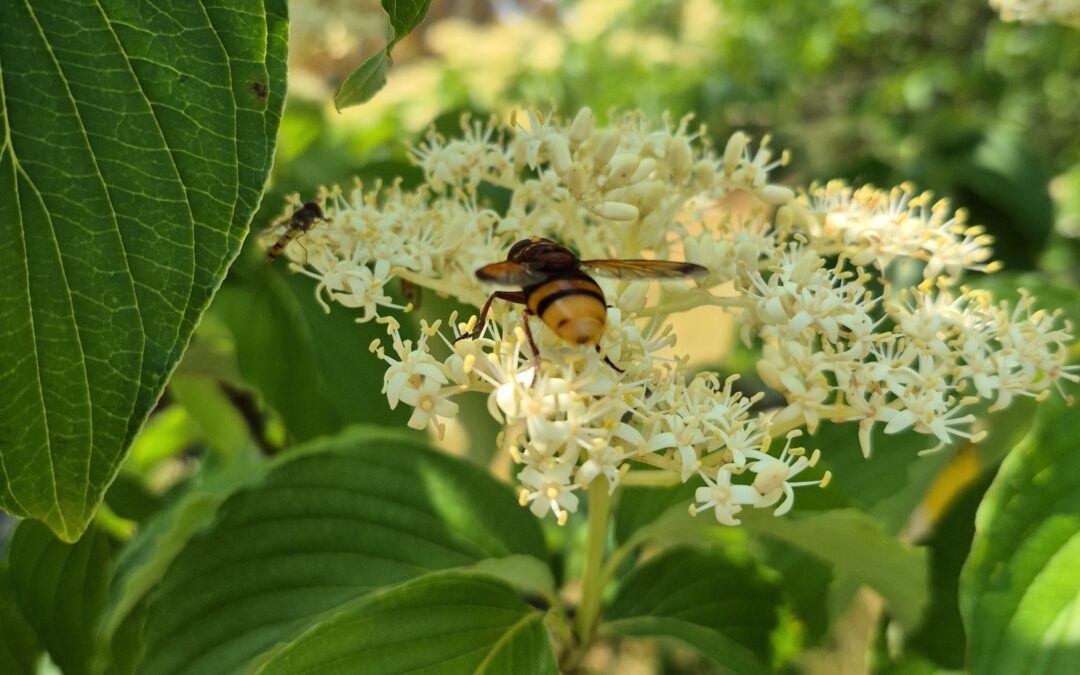What We Know About Trees Needs to Change
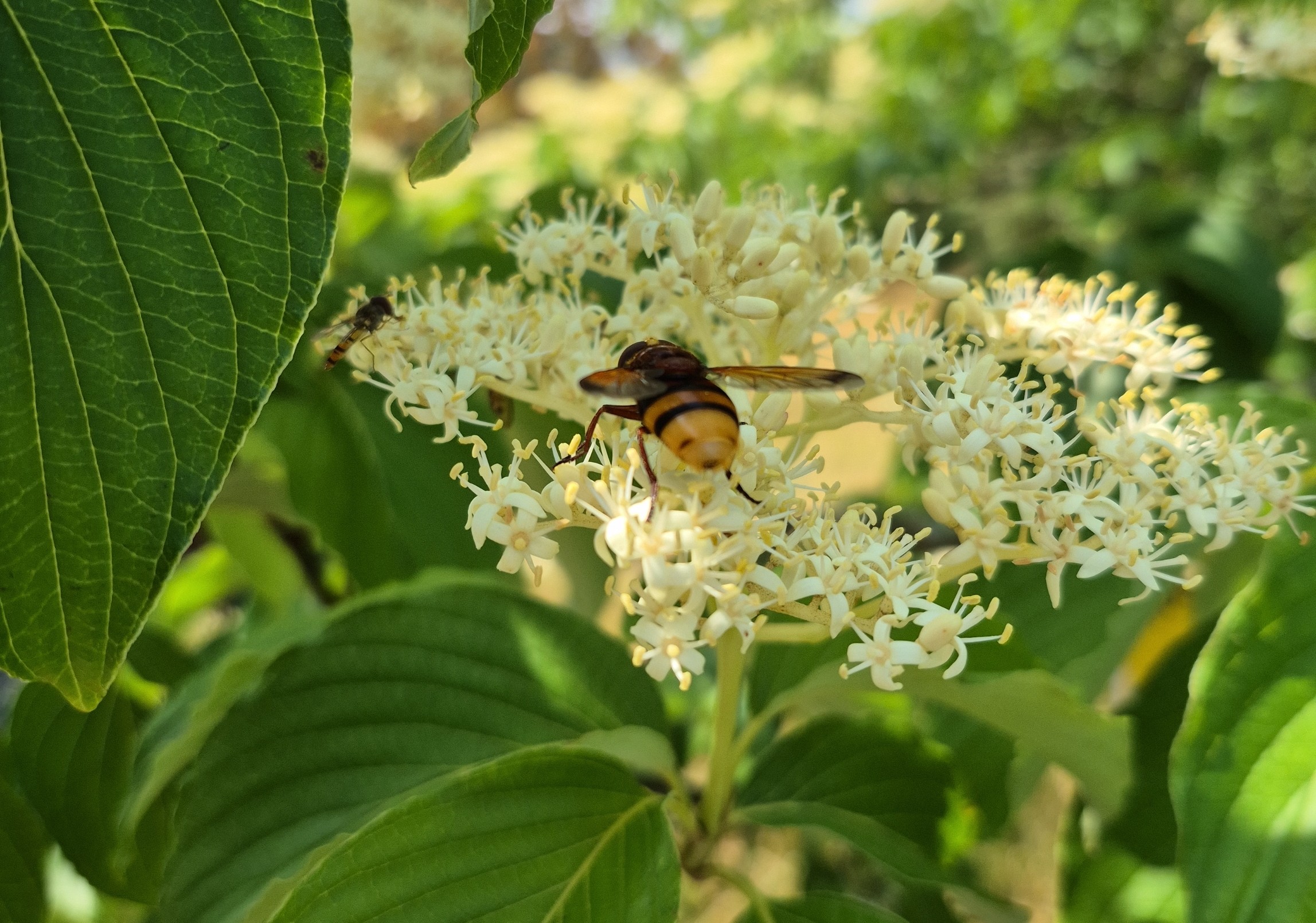
It is widely known that over 75% of the world’s food crops are dependent on pollinators. Loss of habitat, pesticide use, and climate change are threatening wild pollinator abundance and distribution. The UK government launched a Pollinator Action Plan to mitigate these threats, and there are national citizen science programmes to support data collection.
You may be thinking ‘where do trees come into this?’ At Wakehurst, the Nature Unlocked pollination team led by Dr Janine Griffiths-Lee are researching into the importance of trees for wild pollinators.
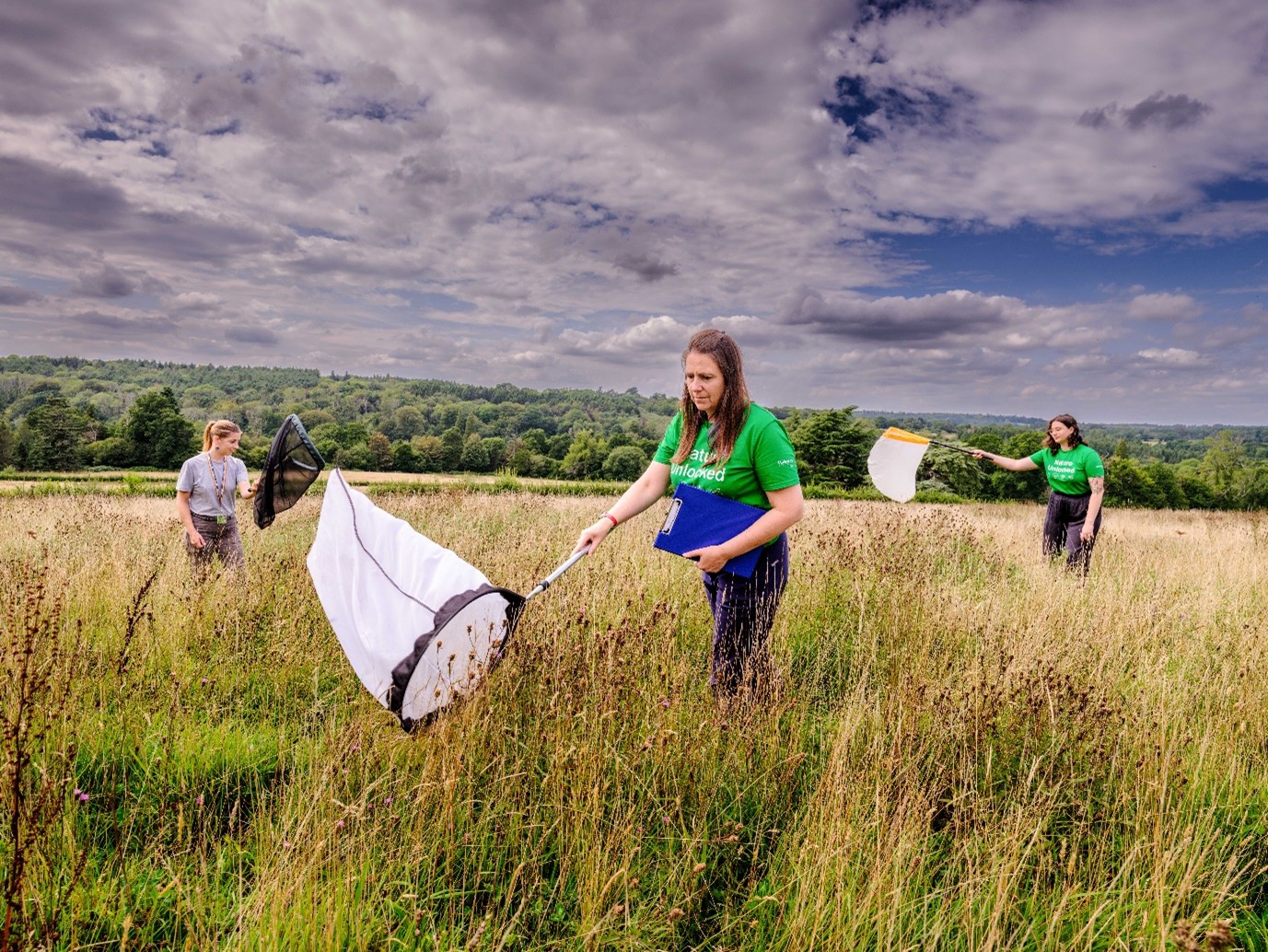
Trees act as ‘sky meadows’, with their flowering canopy providing forage for wild pollinators. The UK has lost 97% of its wildflower meadows. In our urban areas with limited planted space trees act as ‘sky meadows’, with their flowering canopy providing forage for wild pollinators. They occupy minimal space at the ground level, making them ideal for urban planting. Despite this, few studies have addressed the true value of trees to pollinators.
Wakehurst is a 535-acre, multi-habitat landscape with over 1,500 species of native and exotic tree: a perfect site to develop standardised methods on the best trees for pollinators. Specifically, Nature Unlocked are researching the abundance and diversity of our native UK pollinators, as well as their foraging and nesting preferences.
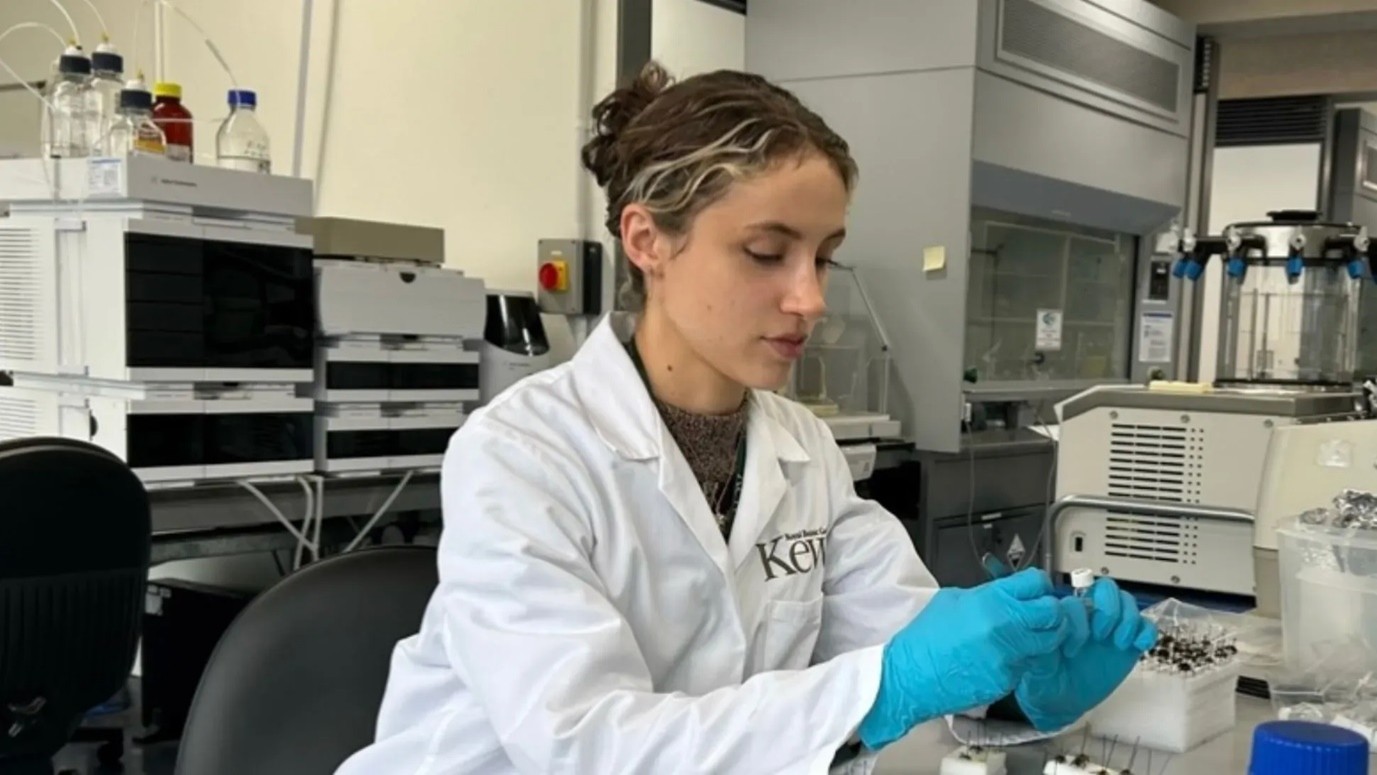
The team have selected numerous trees across the flowering season to install bioacoustic monitors to detect the frequency of bumblebee wingbeats as they visit the tree. These data are combined with DNA analysis of insect-derived pollen plus a citizen science project called ‘Trees for Bees’, which collects data on bees, hoverflies and social wasps. Over 500 visitors to Wakehurst have participated in Trees for Bees since the project launched in 2023, and it requires no previous scientific knowledge. The project has attracted hobby ecologists alongside people who enjoy being in nature, observing the small, hard-working creatures that often go unnoticed. Collated together, all these data will generate planting recommendations to be shared publicly, so that anyone from local community gardens to urban planners can support pollinators.
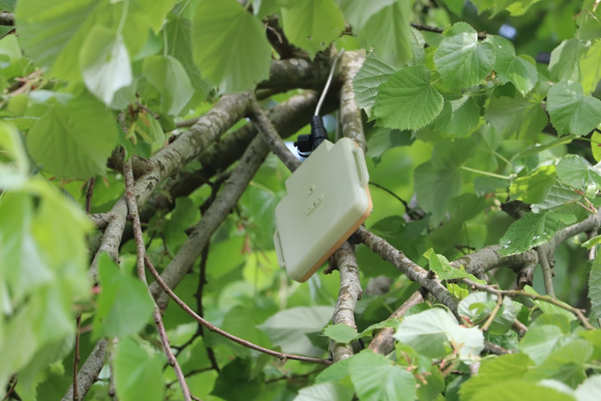
Nature does not work in siloes, so neither can science. Our pollination scientists are working closely with remote sensing teams and seed ecologists, all using the Wakehurst landscape as a ‘living laboratory’. This collaboration means we can ask what trees are good for pollinators alongside being resilient to extreme weather events and providing wider benefits such as carbon storage. This evidence will be critical to making local and national decisions on resilient land use for people, climate, and nature. The Nature Unlocked team are working closely with local nature recovery teams, Defra, Universities and the Weald to Waves team to exchange knowledge and develop projects, and are keen to build further regional partnerships.
Participate in Trees for Bees: https://www.kew.org/read-and-watch/bee-citizen-scientist The project will start again in early spring 2026.
Get in touch about partnerships with Nature Unlocked: Becca Roberts, r.roberts2@kew.org
By Rebecca Roberts & Miranda Bolton from the Nature Unlocked team, Wakehurst
Nature Unlocked’s pollination work has been generously funded by Mount Anvil and Peabody. With thanks to Legal & General for funding our bioacoustics monitors.
